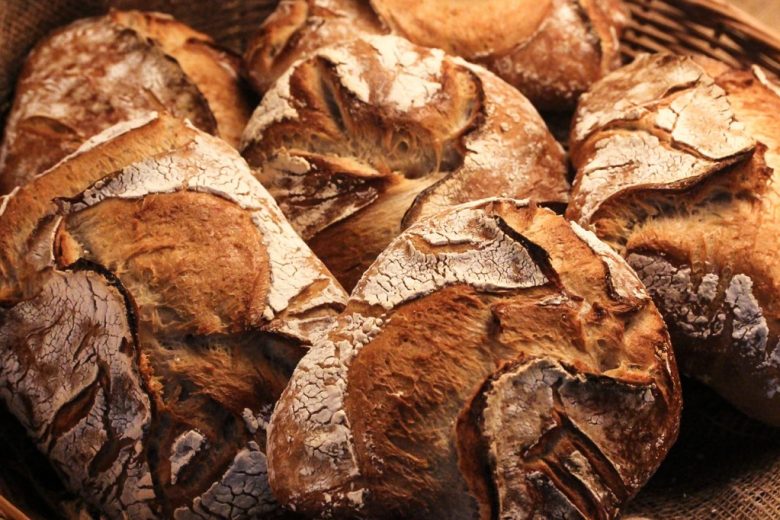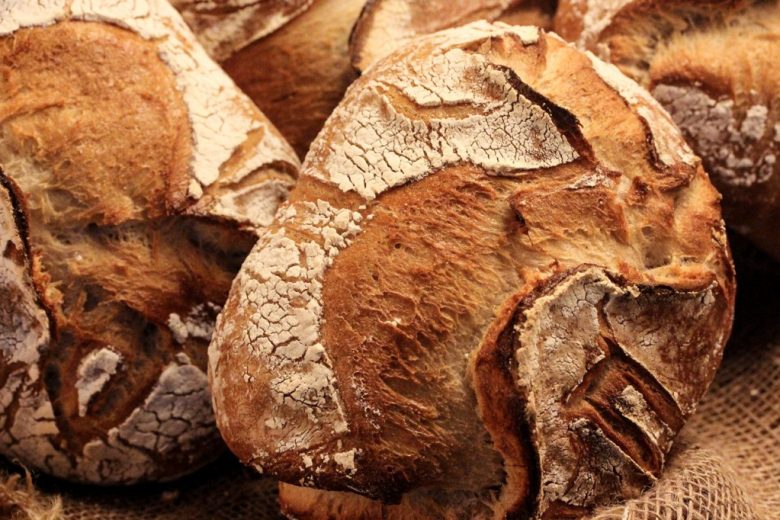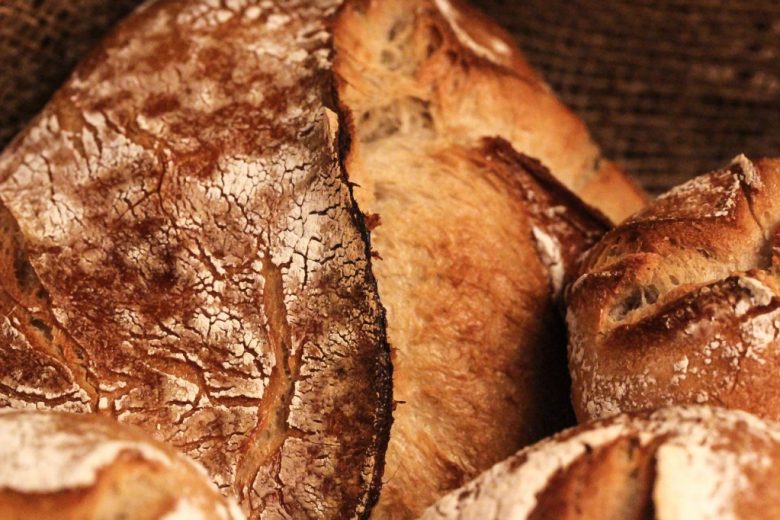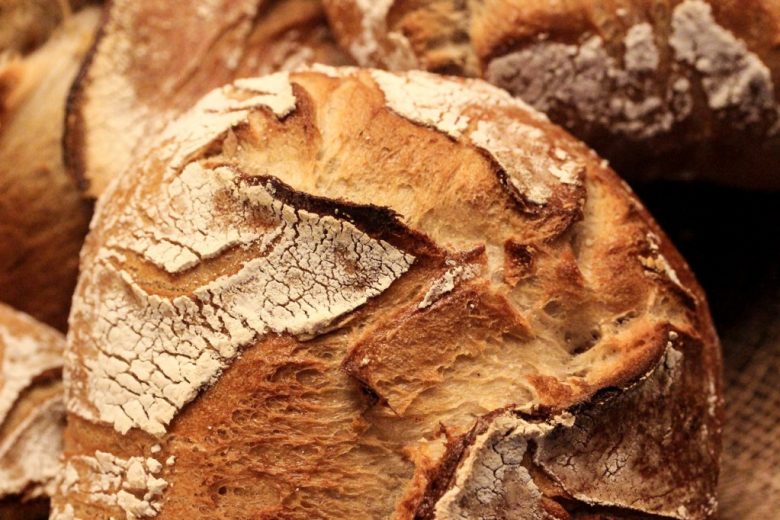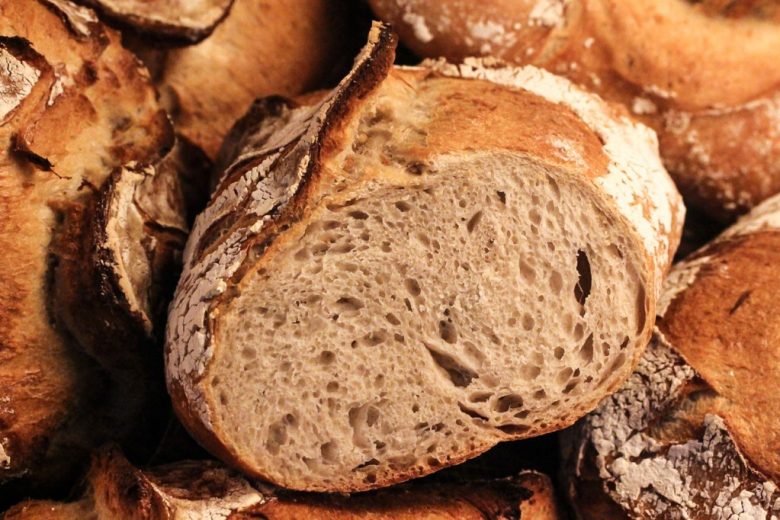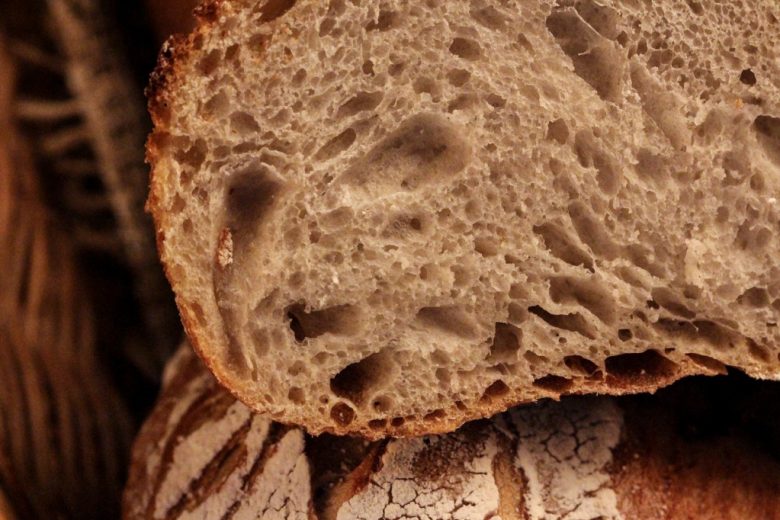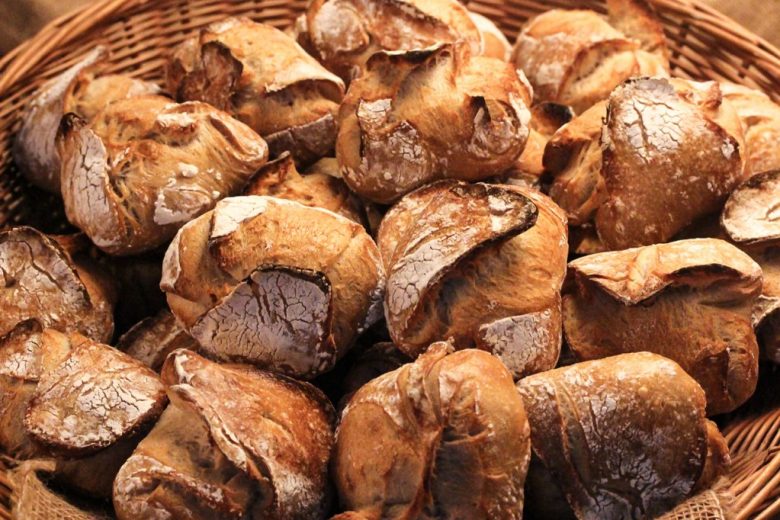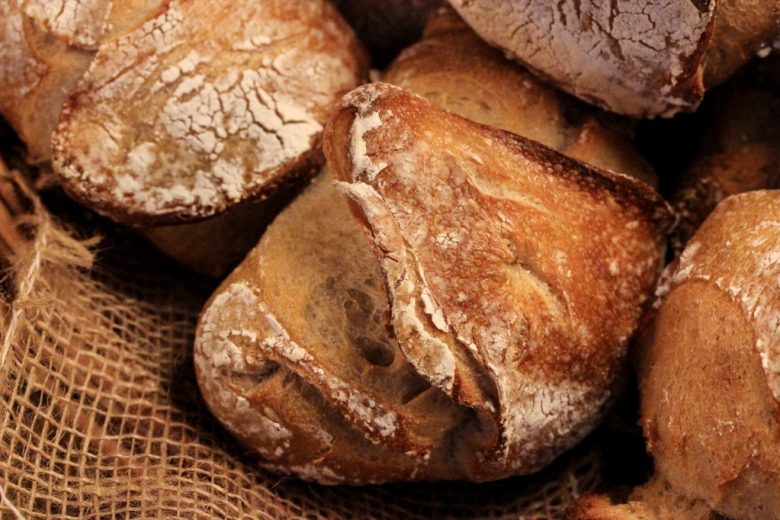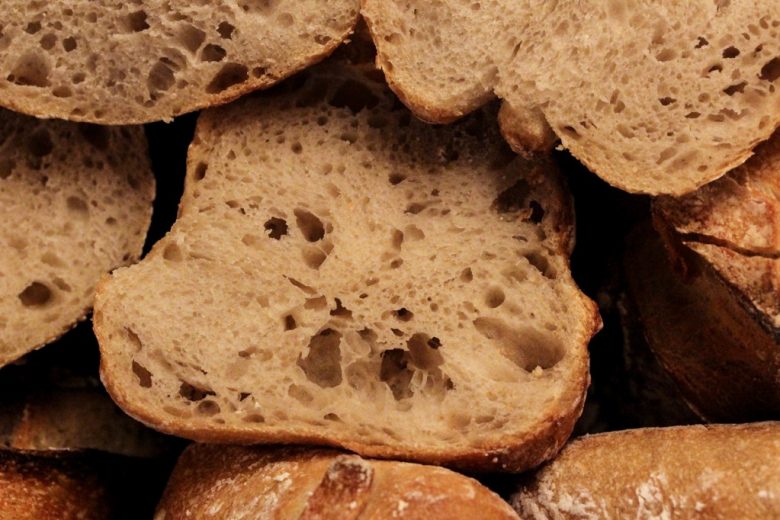Rustic Samareiner Bread
The smell and taste of wheat and mixed wheat breads is primarily determined by the crust. It contains 80% of the aromatic substances. The crumb also has to convince in terms of taste, but unfortunately this aspect is very often neglected. To check the quality, it is always necessary to taste the crumb separately.
The terms weak in taste, not very aromatic and bland are used to judge the intensity of the crumb’s taste. The main reasons for these errors are likely due to the dough being processed too quickly. With short production times and without pre-dough, no sufficient aroma can develop and too large a volume also reduces the aroma development.
Stodgy, doughy
The stodgy and doughy taste impression is caused by too short a baking time. In order to achieve a tender crust, the baking time is often reduced. In order not to neglect the crumb solidification time, it is better to lower the baking temperature and extend the baking time a little.
Sour, bitter
For wheat rolls, a sourdough should be replaced with a non-soured pre-dough, but 5% sourdough can round off the taste. Sourdough quantities over 5% can dominate the taste and thus lead to a one-sided expression.
The description “sour” alone expresses excessive acidification of the roll. Basically, the acidified flour amount was too high. Of course, the sourdough cannot have been optimally made either because it ripened at too high temperatures, for example. A standing time that was too long can also be an error, but this description leads more to “acidic”.
Salty
If the roll’s crumb is described as salty then the salt content usually is above 2.5%.
Bitter, dull, musty
Old and spoiled flours cause a negative taste that cannot be reduced by baking. Flours with this defect can be recognized by a musty odor, which is usually caused by storage that is too moist.
A bitter taste can also be caused by a burnt crust.
Yeasty, fermenty
A smell and taste that is too yeasty or even fermented cause degradation of consumption. Excessive amounts of yeast and overripe pre-doughs that have been made with too much yeast are the cause of this.
Rancid
A rancid taste results from the spoilage of fat. If fats or oils are stored at room temperature for longer periods of time, enzymes break down the fat, so that free fatty acids are formed, which have powerful odor and taste consequences.
Poorly cleaned and improperly stored baking sheets can also contain rancid fat. This taste is transferred to the dough during baking.
Crumb crumbles when slicing:
When slicing the crumb loosens and it is difficult to spread butter.
Reasons for this defect:
- In this case, too, there are a number of possibilities that cause the error. From direct processed doughs that are too warm and too firm. The swelling of the starch and the gluten was insufficient.
- The kneading time may have been too short
- Dough maturity and bulk rise was too short
Remedies:
- Except with optimizing the dough processing, soured pre-dough should not be used
- 5% rye flour
- Longer kneading times
- Avoid too low dough temperatures (not under 23°C)
Recipe
For a dough weight ot 1835g / 4 pieces – 460g or 23 pieces – 80g
Poolish:
- 200g Wheat flour Type 700
- 200g Water 20°C
- 2g Yeast
Hydration(TA): 200 DT: 25°C / 2 hours the store at 4°C in the refrigerator Maturity time: 18-24 hours
Sourdough:
- 145g Rye flour Type 960
- 145g Water
- 10g Starter
Hydration(TA): 200 DT: 28°C Maturity time: 18 Std
Main dough:
- 402g Mature poolish
- 300g Mature Sourdough
- 150g Spelt flour Type 630
- 550g Wheat flour Type 700
- 400g Water
- 25g Salt
- 8g Yeast
DT: 24-25°C Mixing time: 6 minutes slow/ 6 minutes fast
- Knead all ingredients for 6 minutes on slow and 6 minutes on fast
- After kneading, the dough rests for 45 minutes in the mixing bowl
- Turn the dough out of the mixing bowl and fold once
- Allow to rise, covered on a floured work surface for 60 minutes
- Cut off the desired dough portions and fold the dough from all sides into the middle.
- The folded surface is laid on a floured linen cloth and covered to proof (these can also proof slowly at 4°C in the refrigerator/ 5-6 hours. If the cold proof is stretched out to 12 hours, the yeast amount should be halved!)
- Once fully proofed, turn them oven and bake with strong steam
- The Samareiner are baked at 250°C / 5 minutes
- Then reduce the oven to 210°C and bake until well browned (total baking time 35-40 minutes)
Careful: The smaller the dough size, the higher the baking temperature- don’t reduce the oven temperature!
Baking time for 80g dough size: 250°C / 14-15 minutes


